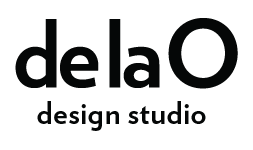Plastic: Villain or Hero. Getting to know Mexind Collective!
Project: The New Normal Superhero
Mexind Collective: Daniela Anaya, Manan Pahwa and Paulina Méndez
Andrea: Which was your motivation for the concept of your project?
Mexind: Media does leave people in a conundrum and biased opinions - Is plastic a villain or a hero? However, the most fortunate part of the population do not feel related to the accumulation of plastic and the problems it triggers. This is why we decided to show a future in which your socioeconomic condition will not save you or your children from taking urgent action and “get your hands dirty.”
Andrea: Why did you decide to have this approach?
Mexind: We believe an effective way to make people conscious about controversial issues is to paint the dystopian reality. It is a nice start point to drive activism since we bridge the gap between the future speculation and today. Besides, people tend to care about their children and the future that awaits them, so we trust the visualization of a future that is all about their fate.
Andrea: Which were your main inspirations?
Mexind: We found inspiration in the initiatives already going on that are primarily built by the youth - such as Fridays for Future and Greta Thunberg. We wanted to highlight the importance of thinking in the new generations, and how today's actions might have consequences in the near future.
Andrea: What would you want the audience to reflect because of your project?
Mexind: We want people to realize that plastic is everyone’s problem, and although it has helped us fight diseases and reduce costs. We need to take care of the consequences so that plastic and humans can coexist harmoniously. Education is actually an excellent path to approach the problem and take action, it just depends on how far we have to take it in a critical context.
Andrea: Do you think something like this could become true in the future? Or does it already exist something similar?
Mexind: We did find some initiatives similar to the concept of our representation. The Akshar School in India, for example, accepts plastic waste as school fees. All around the world, there is a need to redefine education systems to fit the life skills society needs in the current context, which makes our project relevant and possible. Contexts are changing and boundaries are diluting - and different professions earlier seen in silos are now joining forces for innovation.
Also Climate Change Mitigation strategies (like the Paris Agreement & SDGs) have opened a new world full of opportunities and collaboration, however the progress on the action isn’t that exciting (especially by the developed economies), coupled with the coldness of the COVID-hit world (Similarly, MNCs are taking advantage of the pandemic and monopolising on the fact that plastic became the hero in pandemic).
Speculation of mitigating climate change in time seems to be a far-fetched idea.
Andrea: How do you think speculative design helps to tackle environmental and social issues?
Mexind: It opens new gateways of thinking, besides making impact assessments more qualitative and relatable. We are planting a seed and re-imagining possibilities so that the future becomes tangible and even controllable.
Andrea: What do you think is your role as a designer of the future?
Mexind: Empower better decision making by providing tools to envision, prototype and imagine better futures. Open new ways of imagining the future with the power of speculative design - to facilitate thinking and behavioural change via the power of design.
Andrea: Which are going to be your next steps for your project or for you as a designer?
Mexind: We were glad to make a global collective named the MEXIND Collective. We are currently learning about each other and local contexts and carrying forward this project and similar conversations so we can draw analogies between two similar countries that exist on different sides of the globe. We believe in the power of the speculative process and we are working on taking it further in socio-environmental issues.
If you want to know more about their work you can con follow them at @mananpahwaa, Daniela Anaya and Paulina Méndez.


